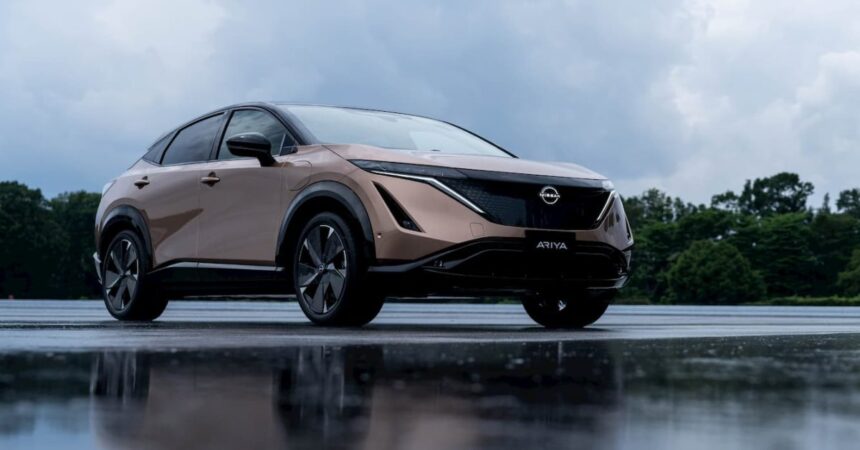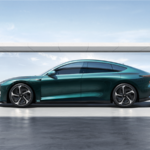Despite Nissan’s recent claims to intensify its efforts in delivering electric vehicles, production of its inaugural electric SUV, the Nissan Ariya, is currently operating at a third below planned levels.
Nissan marked a significant milestone in 2020 by introducing the Ariya, its second globally sold electric vehicle, following the pioneering LEAF, which debuted in 2010 and helped establish the brand as a trailblazer in the mass-market EV sector.
After claiming the top spot as Europe’s best-selling electric car in 2018, the LEAF gradually faded into obscurity, overshadowed by a slew of innovative, fully-electric vehicles from manufacturers such as Tesla, Ford, GM, Hyundai, Volkswagen, and others that have entered the market since then.
Nissan’s Ariya was crafted to inject vitality into the model and propel it forward as the brand entered a new era in 2021, but following several setbacks, it finally debuted last year at a base price of $43,190.
Nissan has issued a voluntary recall for 1,063 Ariya electric SUVs due to three reported incidents where the steering wheel either came loose or detached entirely, prompting the manufacturer to take proactive measures to ensure driver safety.
Following the release of a latest report, the Nissan Ariya has encountered another obstacle, as supply chain issues are impeding production.
Nissan Ariya manufacturing bottlenecks
According to insiders and review of production plans, Nissan’s Ariya manufacturing is currently operating at a rate at least one-third below its intended capacity.
Nissan’s novel electric vehicle (EV) powertrain strategy involves integrating production lines for battery-electric cars and hybrid models, a challenging endeavor that has proven “incredibly complex,” according to insiders.
Following a fire at Wuxi Welnew Micro-Digital’s Chinese manufacturing facility in January, Nissan is grappling with a shortage of plated digital components due to the incident.
Nissan unveiled The Ariya as an integral component of its initial Ambition 2030 electric vehicle strategy, later updated to accelerate its electrification efforts and introduce 19 new EV models by the end of the decade.
Nissan is striving to produce around 400 units of its Ariya electric vehicle daily, a volume that could translate to over 100,000 vehicles annually; however, the latest supply and manufacturing constraints are expected to significantly shortchange that goal.











